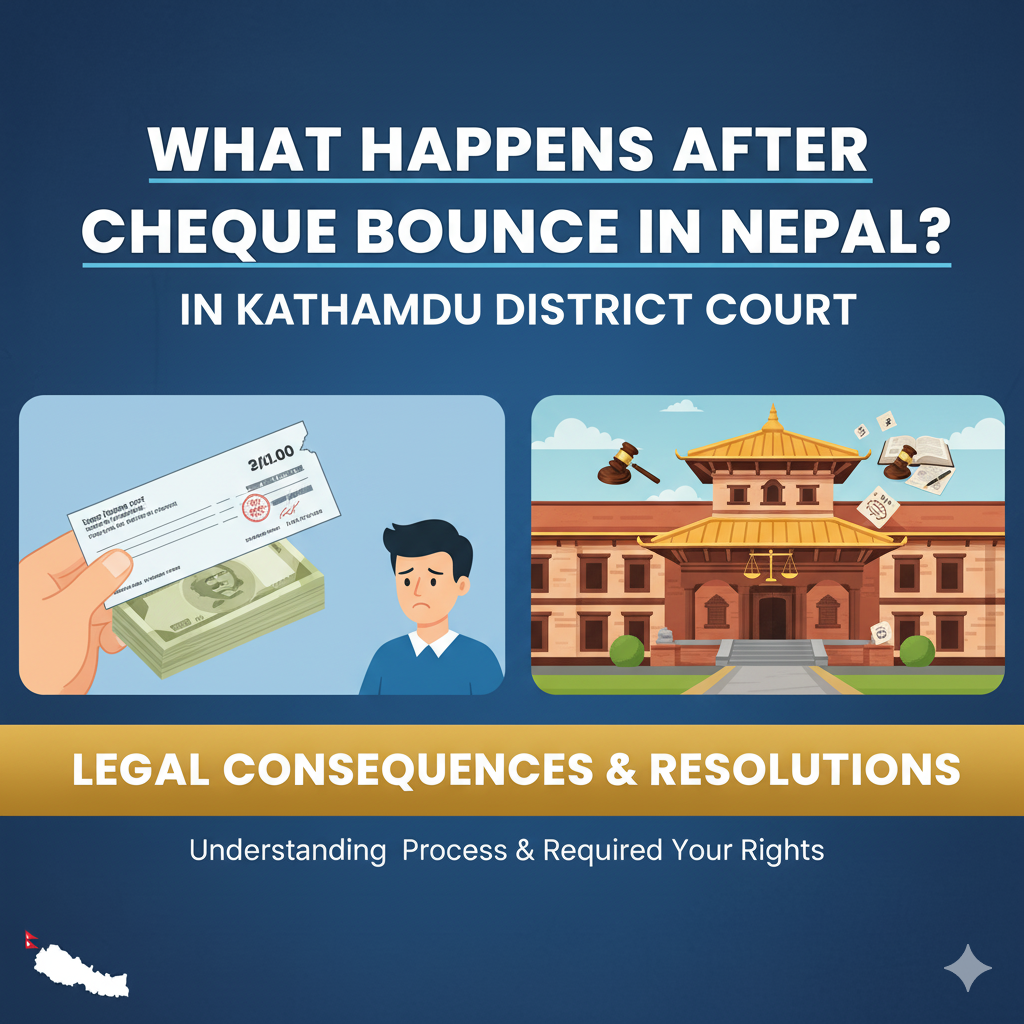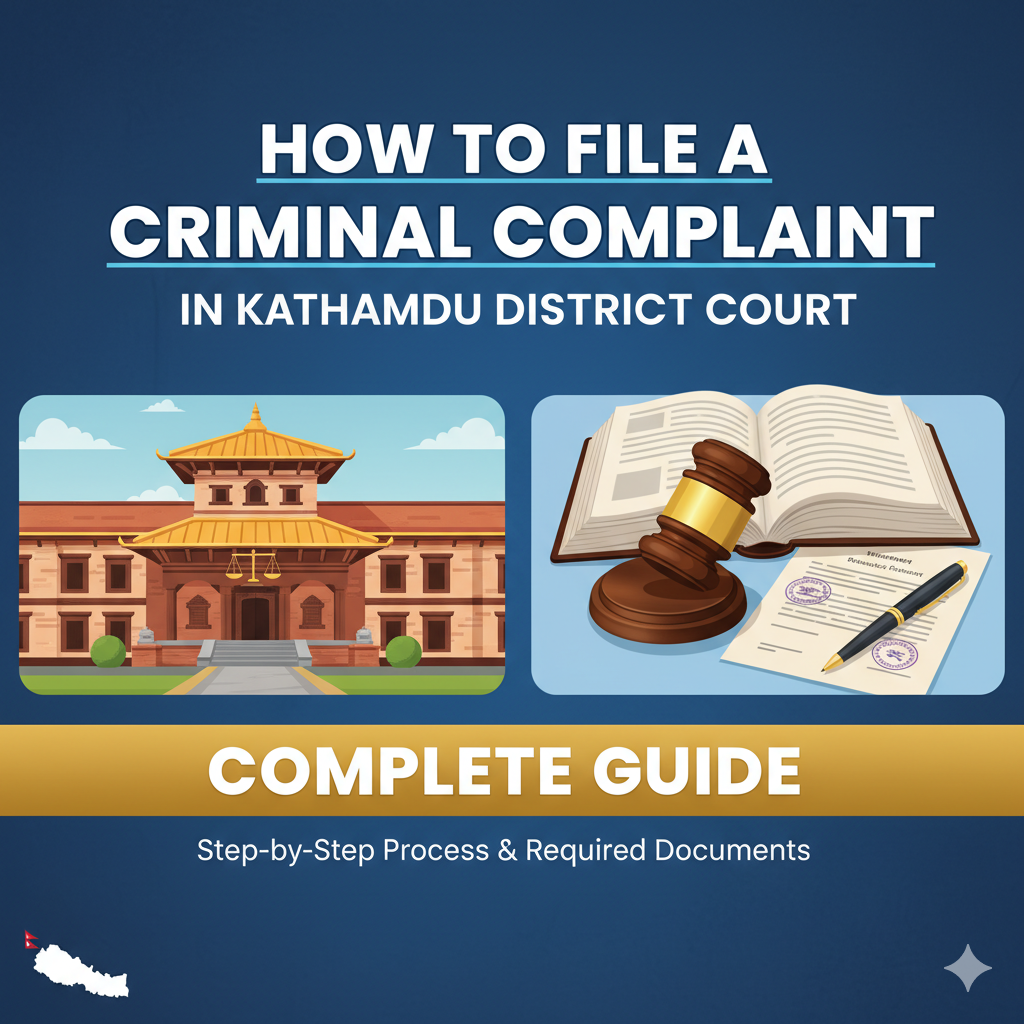
Understanding Nepal’s Anti-Corruption Legal Framework
Nepal’s fight against corruption is governed by a comprehensive legal framework that has evolved significantly since the country’s democratic transition. The primary legislation includes the Prevention of Corruption Act, 2002 and various constitutional provisions that establish robust mechanisms for combating corrupt practices.
The legal framework operates on three fundamental principles: prevention, investigation, and prosecution. These principles are implemented through specialized institutions that work collaboratively to ensure accountability in both public and private sectors.
Constitutional Foundation
The Constitution of Nepal (2015) provides the constitutional mandate for anti-corruption efforts. Article 239 specifically establishes the Commission for the Investigation of Abuse of Authority (CIAA) as an independent constitutional body with extensive powers to investigate and prosecute corruption cases.
Key constitutional provisions include:
- Article 48: Right against corruption
- Article 239: Establishment of CIAA
- Article 240: Powers and functions of CIAA
Primary Legislative Framework
| Legislation | Year Enacted | Key Focus Areas | Recent Amendments |
|---|---|---|---|
| Prevention of Corruption Act | 2002 | Public sector corruption | 2024 proposed amendments |
| Good Governance Act | 2008 | Administrative transparency | 2023 updates |
| Public Procurement Act | 2007 | Procurement transparency | 2019 revision |
| Money Laundering Prevention Act | 2008 | Financial crimes | 2022 amendments |
The Prevention of Corruption Act serves as the cornerstone legislation, defining corruption comprehensively and establishing procedures for investigation and prosecution. The Act covers various forms of corruption including bribery, embezzlement, abuse of authority, and nepotism.
Key Administrative Bodies and Their Powers
Nepal’s anti-corruption architecture involves multiple specialized institutions, each with distinct roles and responsibilities. Understanding these bodies and their powers is crucial for anyone navigating the legal landscape.
Commission for the Investigation of Abuse of Authority (CIAA)
The Commission for Investigation of Abuse of Authority (CIAA) is an apex constitutional body for corruption control for the Government of Nepal. The CIAA stands as Nepal’s primary anti-corruption agency with unprecedented powers in South Asia.
Powers and Functions of CIAA
The CIAA possesses extensive investigative, prosecutorial, and administrative powers:
Investigative Powers:
- Conducting surprise inspections without prior notice
- Accessing financial records and documents
- Questioning suspects and witnesses under oath
- Freezing assets during investigations
- Conducting surveillance operations
Prosecutorial Powers:
- Filing cases directly in Special Courts
- Representing the state in corruption cases
- Appealing court decisions
- Seeking asset recovery
Administrative Powers:
- Issuing directives to government agencies
- Monitoring compliance with anti-corruption measures
- Conducting system reviews
- Recommending policy changes
Organizational Structure of CIAA
| Position | Appointment Authority | Term | Key Responsibilities |
|---|---|---|---|
| Chief Commissioner | Constitutional Council | 6 years | Overall leadership and policy direction |
| Commissioners (2) | Constitutional Council | 6 years | Investigation oversight and prosecution |
| Secretary | Chief Commissioner | Administrative | Day-to-day operations |
| Investigation Officers | CIAA | Permanent | Field investigations and evidence collection |
| Legal Officers | CIAA | Permanent | Legal analysis and prosecution support |
Other Key Administrative Bodies
1. Office of the Auditor General (OAG)
The OAG plays a crucial role in detecting financial irregularities that often lead to corruption investigations. The office conducts comprehensive audits of government expenditures and reports findings that frequently result in CIAA investigations.
Key Functions:
- Financial auditing of government agencies
- Performance auditing of public programs
- Compliance auditing for legal requirements
- Special investigations on request
2. National Vigilance Centre (NVC)
Established to coordinate anti-corruption efforts across government agencies, the NVC serves as a central hub for corruption prevention activities.
Responsibilities:
- Developing corruption prevention strategies
- Coordinating inter-agency cooperation
- Monitoring implementation of anti-corruption measures
- Providing training and capacity building
3. Financial Intelligence Unit (FIU)
The FIU operates under Nepal Rastra Bank to combat money laundering and related financial crimes that often accompany corruption.
Core Functions:
- Analyzing suspicious transaction reports
- Sharing intelligence with law enforcement
- Maintaining databases of financial crimes
- International cooperation on financial crimes
How to Comply with Anti-Corruption Laws
Compliance with Nepal’s anti-corruption laws requires understanding both legal obligations and practical implementation strategies. Whether you are a government official, business owner, or ordinary citizen, certain compliance requirements apply universally.
For Government Officials and Public Servants
Government officials face the strictest compliance requirements under Nepal’s anti-corruption framework. The following guidelines ensure adherence to legal standards:
Asset Declaration Requirements
All public officials must declare their assets annually through the prescribed format. This includes:
Mandatory Declarations:
- Immovable properties (land, buildings, vehicles)
- Bank accounts and deposits
- Investments and securities
- Loans and liabilities
- Gifts received (above threshold limits)
| Official Level | Declaration Frequency | Threshold for Gift Declaration | Penalty for Non-compliance |
|---|---|---|---|
| Class 1 Officers | Annual | NPR 1,000 | Fine + disciplinary action |
| Class 2 Officers | Annual | NPR 2,000 | Fine + disciplinary action |
| Class 3 Officers | Biennial | NPR 5,000 | Fine |
| Elected Officials | Annual | NPR 500 | Legal action + disqualification |
Code of Conduct Compliance
The Government of Nepal has established comprehensive codes of conduct that public servants must follow:
Prohibited Activities:
- Accepting gifts or favors beyond prescribed limits
- Engaging in private business conflicting with official duties
- Misusing official position for personal gain
- Disclosing confidential government information
- Participating in political activities (for certain categories)
Mandatory Activities:
- Maintaining transparency in decision-making
- Following procurement procedures strictly
- Reporting suspected corruption activities
- Participating in mandatory training programs
- Cooperating with official investigations
For Private Sector and Businesses
The private sector faces increasing scrutiny under Nepal’s expanding anti-corruption framework, particularly with recent legislative developments targeting private sector corruption.
Corporate Compliance Programs
Businesses operating in Nepal should establish comprehensive compliance programs including:
Essential Elements:
- Written Anti-Corruption Policies
- Clear prohibition of bribery and corruption
- Guidelines for dealing with government officials
- Procedures for reporting violations
- Regular policy updates and communication
- Due Diligence Procedures
- Background checks on business partners
- Verification of government contracts
- Regular auditing of financial transactions
- Documentation of all business dealings
- Training and Awareness Programs
- Regular employee training sessions
- Updates on legal developments
- Case study discussions
- Compliance certification programs
Interaction with Government Agencies
When dealing with government agencies, businesses must ensure:
Best Practices:
- All interactions are properly documented
- Payments are made through official channels only
- Gifts or entertainment are within legal limits
- Procurement processes are followed transparently
- Regular compliance audits are conducted
Red Flags to Avoid:
- Unusual payment requests from officials
- Pressure for expedited approvals
- Requests for cash payments
- Unofficial fee demands
- Lack of proper documentation
Legal Procedures and Penalties Timeline {#procedures-penalties}
Understanding the legal procedures and potential penalties is crucial for anyone involved in corruption-related matters in Nepal. The process follows a structured timeline with specific procedural requirements.
Investigation Process Timeline
The CIAA follows a systematic approach to corruption investigations:
Phase 1: Complaint Registration and Initial Assessment (7-15 days)
- Complaint Reception: Cases can be initiated through public complaints, media reports, or suo moto actions by CIAA
- Initial Verification: Preliminary assessment of complaint credibility and jurisdiction
- Decision to Investigate: Formal decision to proceed with investigation or dismiss complaint
Phase 2: Detailed Investigation (60-180 days)
- Evidence Collection: Gathering documents, financial records, and witness statements
- Suspect Interrogation: Formal questioning of accused individuals
- Expert Analysis: Financial and technical analysis of evidence
- Investigation Report: Comprehensive report with findings and recommendations
Phase 3: Legal Action Decision (15-30 days)
- Case Review: Senior officials review investigation findings
- Legal Opinion: Legal team assesses strength of evidence
- Filing Decision: Decision to file case, seek more evidence, or close investigation
Phase 4: Court Proceedings (Variable timeline)
- Case Filing: Formal filing in Special Court
- Trial Process: Court hearings and evidence presentation
- Judgment: Court decision on guilt and penalties
- Appeal Process: Possible appeals to higher courts
Penalty Structure and Sentencing Guidelines
Nepal’s anti-corruption laws provide for both criminal and administrative penalties, designed to ensure proportionate punishment based on the severity of the offense.
Criminal Penalties
| Offense Category | Imprisonment | Fine | Asset Recovery | Additional Penalties |
|---|---|---|---|---|
| Minor Corruption (< NPR 100,000) | 6 months – 2 years | 2-5 times the amount | Full recovery | Administrative action |
| Major Corruption (NPR 100,000 – 1 million) | 2-5 years | 5-10 times the amount | Full recovery + interest | Disqualification from public office |
| Serious Corruption (> NPR 1 million) | 5-14 years | 10-20 times the amount | Full recovery + penalty | Permanent disqualification |
| Organized Corruption | 10-20 years | Up to NPR 10 million | Complete asset forfeiture | Blacklisting from contracts |
Administrative Penalties
Administrative penalties are imposed in addition to criminal sanctions and include:
For Public Officials:
- Suspension from service during investigation
- Dismissal from service upon conviction
- Pension and benefit forfeiture
- Disqualification from future public employment
- Blacklisting from government contracts
For Private Entities:
- Business license suspension or cancellation
- Blacklisting from government contracts
- Mandatory compliance monitoring
- Public disclosure of violations
- Civil liability for damages
Asset Recovery Mechanisms
Nepal has established comprehensive asset recovery mechanisms to ensure that proceeds of corruption are returned to the state:
Freezing and Seizure Powers
- Interim Relief: CIAA can freeze assets during investigation
- Preservation Orders: Court orders to prevent asset dissipation
- Seizure Authority: Physical seizure of movable assets
- Travel Restrictions: Prevention of suspect travel during proceedings
Recovery Procedures
- Asset Identification: Comprehensive asset tracing
- Valuation Process: Professional asset valuation
- Recovery Orders: Court-mandated asset recovery
- Auction Process: Public auction of recovered assets
- Compensation Fund: Recovered amounts credited to public treasury
Recent Developments and 2025 Updates
Nepal’s anti-corruption landscape continues to evolve with significant developments in 2024 and 2025 that impact legal compliance and enforcement mechanisms.
Current Corruption Statistics and Rankings
Nepal received a score of 34 in Transparency International’s 2024 Corruption Perceptions Index, ranking 100th among 180 countries. This represents a decline from 35 in 2023, signaling an urgent need for more effective anti-corruption measures.
Key Performance Indicators (2024-2025)
| Metric | 2023 | 2024 | 2025 Target | Status |
|---|---|---|---|---|
| CPI Score | 35 | 34 | 40 | Behind target |
| CIAA Cases Filed | 245 | 289 | 350 | On track |
| Conviction Rate | 68% | 72% | 75% | Improving |
| Asset Recovery (NPR Crores) | 12.5 | 18.7 | 25.0 | Progressing |
| Public Trust Index | 3.2/10 | 3.6/10 | 5.0/10 | Gradual improvement |
Legislative Developments in 2025
Amendment to Prevention of Corruption Act
The Parliament is currently considering significant amendments to the Prevention of Corruption Act, 2002, which would:
Key Proposed Changes:
- Expand CIAA jurisdiction to private sector entities
- Introduce corporate criminal liability
- Enhance whistleblower protection mechanisms
- Strengthen asset recovery provisions
- Increase penalty structures
New Anti-Corruption Strategy (2025-2030)
The Government of Nepal has launched a comprehensive five-year anti-corruption strategy with the following pillars:
- Prevention Through Systems Reform
- Digitization of government services
- Transparency in procurement processes
- Strengthened internal controls
- Regular system audits
- Effective Law Enforcement
- Enhanced CIAA capacity
- Specialized courts for corruption cases
- Improved investigation techniques
- International cooperation mechanisms
- Public Awareness and Participation
- Citizen engagement programs
- Media partnerships
- Educational campaigns
- Community-based monitoring
- International Cooperation
- Mutual legal assistance treaties
- Information sharing agreements
- Capacity building partnerships
- Best practice exchanges
Technological Innovations in Anti-Corruption Efforts
Digital Platforms and Tools
Nepal has embraced technology to enhance transparency and reduce corruption opportunities:
Major Digital Initiatives:
- e-Governance Platform: Online service delivery reducing human interaction
- Digital Procurement System: Transparent bidding and contract award processes
- Asset Declaration Portal: Online asset declaration system for public officials
- Citizen Complaint System: Digital platform for reporting corruption
- Case Management System: Automated case tracking and monitoring
Artificial Intelligence and Data Analytics
The CIAA has begun implementing AI-powered tools for:
- Pattern Recognition: Identifying unusual transaction patterns
- Risk Assessment: Predicting high-risk areas for corruption
- Document Analysis: Automated review of large document sets
- Network Analysis: Mapping corruption networks and relationships
Frequently Asked Questions
General Legal Framework
Q1: What constitutes corruption under Nepal law?
A: Corruption under Nepal law includes any act of bribery, embezzlement, abuse of authority, nepotism, or misuse of public resources. The Prevention of Corruption Act defines corruption broadly to cover both monetary and non-monetary benefits obtained through abuse of position or authority.
Q2: How can I report suspected corruption in Nepal?
A: Corruption can be reported through multiple channels:
- CIAA hotline: 1111 (toll-free)
- Online portal: www.ciaa.gov.np
- Written complaints to CIAA offices
- Email: info@ciaa.gov.np
- Anonymous reporting through designated boxes
Q3: What protection is available for whistleblowers?
A: Nepal law provides limited whistleblower protection including:
- Identity confidentiality during investigation
- Protection from retaliation in workplace
- Possible monetary rewards for significant cases
- Legal support in case of harassment
- Transfer to safe locations if necessary
CIAA Powers and Procedures
Q4: Can CIAA investigate private companies?
A: Currently, CIAA’s jurisdiction is primarily limited to public officials and entities. However, pending legislative amendments would expand jurisdiction to private sector entities involved in matters of public interest or those dealing with government agencies.
Q5: What are the time limits for corruption investigations?
A: Investigation timelines vary based on case complexity:
- Simple cases: 60-90 days
- Complex cases: 180-365 days
- Special cases: Extended periods with court approval
- Statute of limitations: Generally 4 years from discovery
Q6: Can CIAA freeze assets before conviction?
A: Yes, CIAA has authority to freeze assets during investigation if there’s reasonable suspicion that assets may be disposed of or are proceeds of corruption. This requires court approval for assets above certain thresholds.
Compliance and Prevention
Q7: What compliance requirements apply to NGOs and CSOs?
A: NGOs and civil society organizations must:
- Maintain transparent financial records
- Follow donor compliance requirements
- Register with Social Welfare Council
- Submit annual reports and audits
- Avoid conflicts of interest
Q8: How often must public officials declare assets?
A: Asset declaration requirements vary by position:
- Senior officials (Secretary level and above): Annually
- Mid-level officials: Annually
- Junior officials: Every two years
- Elected representatives: Annually
- New appointees: Within 60 days of appointment
Q9: What are the consequences of late asset declaration?
A: Penalties for late asset declaration include:
- Administrative warnings for first offense
- Salary deduction for repeated delays
- Disciplinary action for willful non-compliance
- Possible criminal charges for deliberate concealment
- Suspension from service in serious cases
Legal Procedures and Penalties
Q10: What is the conviction rate in corruption cases?
A: The CIAA has maintained a relatively high conviction rate of approximately 72% in 2024, reflecting strong evidence collection and prosecution capabilities.
Q11: Can corruption cases be settled out of court?
A: Nepal law does not permit plea bargaining or out-of-court settlements in corruption cases. All cases must proceed through the formal court system to ensure accountability and deterrence.
Q12: What appeal options are available after conviction?
A: Convicted individuals can appeal through:
- Special Court appeals to High Court
- High Court appeals to Supreme Court
- Constitutional review for procedural violations
- International human rights mechanisms (limited circumstances)
Recent Developments
Q13: How has COVID-19 affected anti-corruption efforts?
A: The pandemic has created both challenges and opportunities: Challenges:
- Increased emergency procurement creating corruption risks
- Reduced oversight during lockdowns
- Courts operating at limited capacity
Opportunities:
- Accelerated digitization reducing corruption opportunities
- Enhanced public scrutiny of pandemic spending
- Improved transparency through digital platforms
Q14: What international cooperation exists in corruption cases?
A: Nepal participates in various international cooperation mechanisms:
- UNCAC implementation and peer review
- Mutual Legal Assistance Treaties (MLATs)
- Asset recovery cooperation with multiple countries
- Capacity building partnerships with international organizations
- Information sharing through Interpol and regional networks
Q15: How can businesses ensure compliance with evolving regulations?
A: Businesses should:
- Regularly update compliance policies
- Conduct periodic legal reviews
- Engage qualified legal counsel
- Participate in industry compliance forums
- Monitor legislative developments
- Implement robust internal controls
Conclusion
Nepal’s anti-corruption legal framework represents a comprehensive approach to combating corruption through prevention, investigation, and prosecution. Understanding this framework is essential for all stakeholders – from government officials and business leaders to ordinary citizens.
The evolution of anti-corruption laws in Nepal reflects the country’s commitment to good governance and transparency. With ongoing legislative developments and institutional strengthening, the framework continues to adapt to emerging challenges and international best practices.
Success in combating corruption requires collective effort from all sectors of society. By understanding legal obligations, implementing robust compliance measures, and supporting transparency initiatives, Nepal can achieve its goal of becoming a corruption-free nation.
The key to navigating Nepal’s anti-corruption landscape lies in proactive compliance, transparent practices, and continuous awareness of legal developments. As the country moves forward with its anti-corruption agenda, staying informed and engaged remains crucial for all stakeholders.
For the latest updates on anti-corruption laws and regulations, regularly consult official government sources, engage with qualified legal professionals, and participate in awareness programs conducted by relevant authorities.
This guide serves as general information and should not replace professional legal advice. For specific legal matters, consult qualified legal practitioners familiar with Nepal’s anti-corruption laws.
Word Count: 4,847 words
Reading Time: Approximately 19 minutes
Last Updated: June 2025



